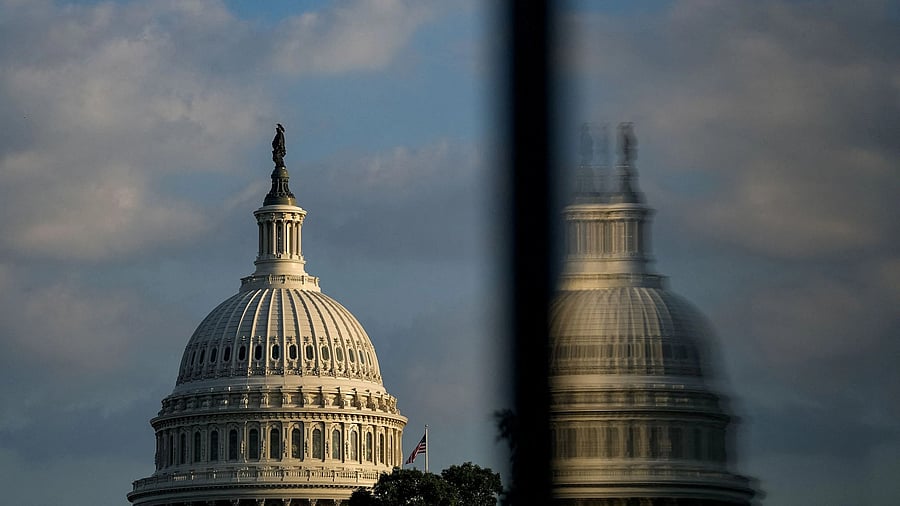
The dome of the U.S. Capitol building is reflected in a window in Washington, D.C., U.S., July 28, 2025. REUTERS/Kent Nishimura
Credit: Reuters photo
The U.S. government's budget deficit grew nearly 20 per cent in July to $291 billion despite a nearly $21 billion jump in customs duty collections from President Donald Trump's tariffs, with outlays growing faster than receipts, the Treasury Department said on Tuesday.
The deficit for July was up 19 per cent, or $47 billion, from July 2024. Receipts for the month grew 2 per cent, or $8 billion, to $338 billion, while outlays jumped 10 per cent, or $56 billion, to $630 billion, a record high for the month.
The month of July this year had fewer business days than last year, so the Treasury Department said that adjusting for the difference would have increased receipts by about $20 billion, resulting in a deficit of about $271 billion.
Net customs receipts in July grew to about $27.7 billion from about $7.1 billion in the year-earlier period due to higher tariff rates imposed by Trump, a Treasury official said. These collections were largely in line with the increase in June customs receipts after steady growth since April.
Trump has touted the billions of dollars flowing into US coffers from his tariffs, but the duties are paid by companies importing the goods, with some costs often passed on to consumers in the form of higher prices.
Consumer price index data on Tuesday showed increases in prices for some tariff-sensitive goods like furniture, footwear and auto parts, but they were offset by lower gasoline prices in the overall index.
For the first 10 months of the fiscal year, customs duties totaled $135.7 billion, up $73 billion, or 116 per cent, from the year-earlier period.
The overall year-to-date budget results showed a $1.629 trillion deficit, up 7 per cent, or $112 billion, from the same period a year earlier. Receipts were up 6 per cent, or $262 billion, to $4.347 trillion, a record high for the 10-month period, while outlays grew 7 per cent, or $374 billion, to $5.975 trillion, also a 10-month record.